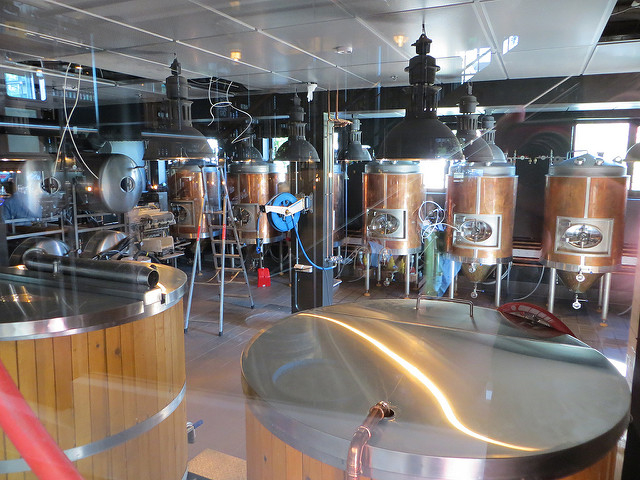Is setting up a micro brewery a licence to print money? This month, a private equity company acquired 22 per cent of BrewDog for just over £200 million, netting a neat £100 million for the founders. Last year, the owners of Budweiser, AB InBev, bought Camden Town Brewery for a reported £85 million. This follows the sale of Meantime Brewery in 2015 to the global giant SAB Miller for an undisclosed amount.
There has been an explosion in the number of craft beer start ups. The number of micro breweries in the UK has grown from 1026 to around 1700.
But far from replicating the BrewDogs of this world, most of these will fail.
The same thing happens in every innovative market where new products are developed. Between 1900 and 1920 there were almost 2000 firms involved in automobile production in the US. Over 99 per cent of them disappeared. Before the First World War, the European film industry operated on a global scale, supplying half the American market. By 1920, European films had virtually disappeared from the US and had become marginal in Europe itself. Hollywood had taken over.
Being big offers no guarantee against failure. Only this month for example, we have seen the reputation of United Airlines seriously damaged, and Toshiba has projected that is losses this year could be as much as $9 billion. Between 2005 and 2009, MySpace was the largest social networking site in the world. NewsCorp bought it for $580 million in 2005, but sold it in 2011 for just $35 million.
These firms, including MySpace, remain in business for the moment, but many giant companies go under eventually. The failure rate of small businesses is high in the first 2 or 3 years of life, because of elementary mistakes such as, for example, not making provision to pay the tax authorities. But, after that, the probabilities of failure in any given year of small and large firms become very similar.
The basic reason is that there is an inherent level of uncertainty about the future, which no amount of cleverness can reduce. In 1914 Briansk Rail and Engineering in Russia was one of the largest industrial companies in the world. But it disappeared in 1917 after the seizure of power by the then tiny Bolshevik Party. This itself became the giant Communist Party of the Soviet Union until it, too, eventually collapsed.
In the economics textbooks, running a business is easy. One of the basic things which students learn is how to maximise the profits of a firm. Even the more advanced material is set in an essentially static world.
The distinguishing features of capitalism are innovation and evolution, but economics has very little to say about these. Things do not just stand still. Last year, for example, Ford had a global income of $151 billion and Tesla had $7 billion. Yet this month, Tesla’s market capitalisation has overtaken Ford’s.
By all means take early retirement to brew the beer you have always wanted. But don’t expect to get rich.


